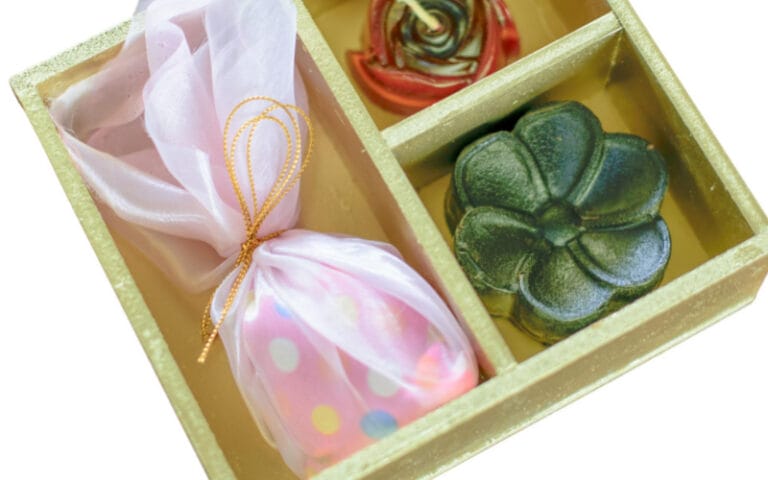Why is Patchouli Oil Offensive? Some Myths and Their Answers
Patchouli oil has a unique fragrance that has divided people into two camps – those who love it and those who hate it. If you are from the latter, we’ll share patchouli oil’s origins, ingredients, and popular uses in this article. We’ll also discuss why this oil’s smell stirs debate, discussing its side effects and why it’s not everyone’s favorite.
Understanding Patchouli Oil
Patchouli oil is an essential oil known for its distinct fragrance and various applications. It’s got a unique earthy and musky smell that people either really love or can’t stand.
Origins and Composition
Derived from the leaves of the Pogostemon cablin plant, Patchouli oil is a member of the mint family, predominantly cultivated in tropical regions. Extracted through steam distillation, this process isolates the oil and captures the potent aroma. Patchouli’s composition is rich in patchoulol, α-patchoulene, and β-patchoulene, among other compounds, which give the oil its unique scent profile.
Common Uses and Misconceptions
Historically, people have used patchouli oil in perfumery, aromatherapy, and even as a moth repellent. Its strong scent is said to have calming and grounding effects. However, it has gained a bad rep for being offensive to some due to overuse and its strong, lingering aroma.
Patchouli oil and its offensiveness are likely because of its historical association with masking odors and poor hygiene. In short, patchouli does not smell good to everyone. But we must appreciate that a small amount of patchouli oil can have a big impact.
Like with any scent, people’s reactions to patchouli can differ widely. But by knowing personal preferences and the psychology of smell, we can understand why patchouli oil stirs up such mixed feelings.
The Controversy Over Patchouli Scent

Patchouli oil has always been a hot topic, with some loving its unique scent while others say it just plain smells awful. Here, we’ve discussed some reasons as to why people have such different reactions to this distinct aroma:
Personal Preferences and Cultural Perceptions
Patchouli’s reputation is as varied as the cultures that embraced it. In the West, it got popular during the counterculture of the 1960s, leaving some with nostalgic feelings and others with disdain.
On the other hand, in certain Eastern traditions, patchouli is a cherished part of rituals and daily life, valued for its deep, earthy aroma. It’s a classic case of one culture finding a scent appealing while another might not, fueling the ongoing debate about patchouli’s scent.
- Patchouli smells awful: A common perspective in contexts where patchouli is not traditionally used.
- Patchouli does not smell good: An opinion typically based on personal preference or unfamiliarity.
- Patchouli stinks: A sentiment that might stem from negative past experiences or associations of patchouli and its blends.
The Psychology of Scent
Our olfactory response to scents like patchouli is rooted in psychology. Researchers have found that the olfactory system is closely linked to the emotional center of the brain. This means a scent can evoke intense and immediate positive and negative reactions.
Patchouli’s musky undertones are unique. They can trigger a sense of warmth and grounding in some. While others ]can find it overpowering and unpleasant.
- Perception Influenced by Emotion: Whether a person finds patchouli repulsive or captivating can be deeply intertwined with emotional associations.
- Intensity and Uniqueness: Patchouli oil is so potent that its unique scent tends to provoke strong reactions, and it’s rare for anyone to feel indifferent about it.
Adverse Reactions to Patchouli Oil
We’re aware now that not everyone loves Patchouli oil, despite its popularity for fragrance from its incense cones and supposed health perks. This dislike could also be due to potential skin and hair reactions, allergies, or sensitivities when using the oil.
Skin and Hair Reactions
Patchouli oil, like any essential oil, has the potential to cause irritation or adverse reactions when applied to the skin or hair. Here’s a brief overview of why is patchouli oil offensive for hair and skin for some people:
- Skin Irritation: Potential for redness, itching, and swelling.
- Oily Scalp: Overuse can make the scalp overly greasy.
- Heavy Hair: This can make hair feel heavy and limp if not utilized properly.
Allergies and Sensitivities
Other Patchouli oil side effects are allergies and sensitivities in some individuals. These reactions may occur upon inhalation or skin contact. Below is a rundown of allergic reactions and sensitivities that people may experience when using patchouli oil:
- Inhalation Allergies: Sneezing, coughing, wheezing.
- Skin Contact Allergies: Rashes, hives, or other forms of dermatitis.
- Severe Reactions: In rare cases, difficulty breathing or anaphylaxis.
Learn More: Hem Patchouli Incense
Frequently Asked Questions
What are the reasons some people find the scent of patchouli oil unpleasant?
Patchouli oil has a distinct, musky-sweet odor that can be overwhelming for some. Its potency can linger, and it’s often associated with certain historical or cultural contexts that might not appeal to everyone. Various components in the oil are known to elicit strong reactions, which makes it somewhat controversial.
How does patchouli oil affect hair?
When used in hair care products, patchouli oil can provide benefits such as reducing dandruff and balancing oil secretion on the scalp. Its strong scent can also leave hair smelling intensely, which might be preferred by some individuals. However, use it cautiously, as you may find the aroma too potent.
Can patchouli oil cause any adverse reactions or side effects for individuals?
Like many essential oils, patchouli oil can cause adverse reactions if not used properly. It can lead to allergic reactions, skin irritation, or photosensitivity. Individuals with sensitive skin or conditions such as eczema should be cautious and consult with a healthcare professional before using the patchouli oil.
Final Thoughts
So, why is patchouli oil offensive to some? This exploration of its divisive scent, covered in our above post, reveals the mixed reactions it sparks. In some people, side effects like skin irritations and hair reactions can cause a love-hate relationship with the oil. Overall, Patchouli’s controversy is a testament to personal preferences and the psychology of scent, proving what’s appealing to one nose might not tickle another’s fancy.







